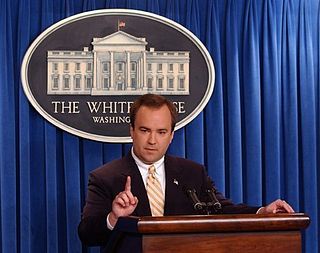A Quote by Leonard Saffir
In crisis management, be quick with the facts, slow with the blame.
Quote Topics
Related Quotes
A typical leader has - a natural tendency is to be defensive in the face of a crisis. The first reaction is to blame someone - or something - else. Often, the blame is aimed at something abstract or non-controllable, which often has nothing to do with the crisis but is adjacent to whatever is going on, so it's an easy target.
We continue to go from crisis to crisis, whether it is electricity or whether it is gas prices. We need comprehensive solutions, not patchwork crisis management. We wouldn't be in this situation today if Senate Democrats weren't holding up the national energy plan that the president proposed back in May of 2001.
Companies that do not actively practice, study, and plan for crisis communications - as well, of course, crisis management - are doomed to fail when a crisis befalls them. Crises are, in a word, inevitable, and those macho companies that think, "it can't happen here," or if it does, "I can handle it," will suffer the hardest failures.
No theory ever agrees with all the facts in its domain, yet it is not always the theory that is to blame. Facts are constituted by older ideologies, and a clash between facts and theories may be proof of progress. It is also a first step in our attempt to find the principles implicit in familiar observational notions.


































